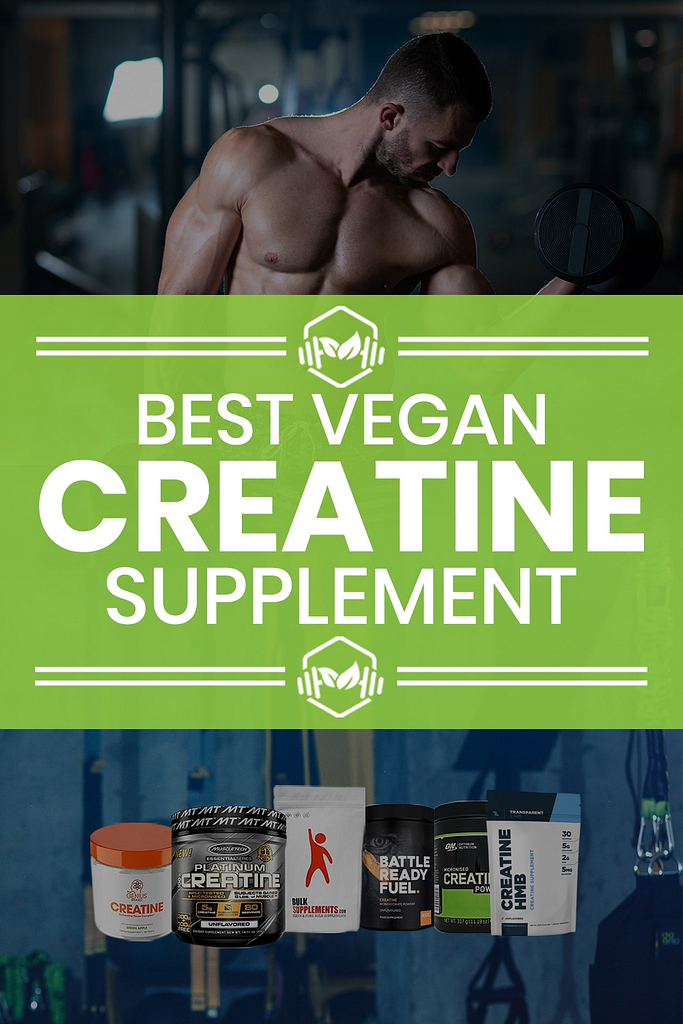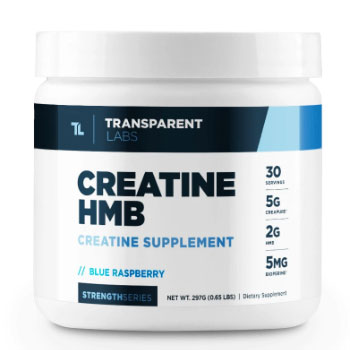Creatine is a popular supplement among athletes and fitness enthusiasts for its role in increasing strength, power, and muscle mass. However, as a vegan, you might be wondering if creatine is suitable for your plant-based lifestyle. The good news is that most creatine supplements are indeed vegan-friendly since they are synthesized from compounds that do not involve animal products.
One concern that vegans should be aware of is the potential for non-vegan ingredients in capsule forms of creatine. Gelatin, which is derived from animals, is sometimes used in the production of capsules. Therefore, it’s crucial for vegans to ensure that the creatine supplement they choose is either in powder form or has vegan-friendly capsules.
Finding a high-quality vegan creatine supplement is not difficult, with many brands offering products tailored to the needs and preferences of vegans. Some popular vegan-friendly creatine supplements include Transparent Labs Creatine HMB and Cira Nutrition’s Creatine Monohydrate. By doing your research and selecting a product that aligns with your values, you can safely incorporate creatine into your vegan lifestyle and optimize your fitness goals.
Vegan Creatine: Understanding the Basics
What is Creatine
Creatine is a natural compound found in the human body, primarily in our muscles, and plays an essential role in the production of cellular energy. When we engage in physical activity, creatine helps provide our muscles with the energy they need to perform at their best. Although our bodies produce creatine, it is also available as a dietary supplement, commonly taken by athletes and fitness enthusiasts to enhance their exercise performance and support muscle growth.
Vegan vs. Non-Vegan Creatine
While dietary creatine is typically derived from animal sources like meat and fish, the creatine found in supplements is often synthesized from vegan-friendly compounds, such as sarcosine and cyanamide. The most popular form of creatine supplement is creatine monohydrate, which is usually vegan.
It is important, however, to check the specific ingredients of a creatine supplement and its delivery method. For example, some creatine supplements in capsule form may use gelatin – a non-vegan ingredient – for the capsule.
Why Consider Vegan Creatine
A vegan creatine supplement provides the same benefits as traditional creatine monohydrate without the need for animal-derived ingredients. This makes it an ideal choice for plant-based athletes or those wanting to avoid animal products.
Some benefits of incorporating vegan creatine supplements into your routine include:
- Increased strength and power: Creatine supplementation has been shown to improve performance in high-intensity, short-duration exercises.
- Supports muscle growth and recovery: It helps to promote muscle synthesis and reduce muscle breakdown, leading to an overall increase in muscle mass over time.
- Cognitive benefits: Research suggests that creatine supplementation may also have a positive impact on cognitive function, particularly in tasks that require short-term memory and quick thinking.
In summary, vegan creatine supplements offer the same benefits as traditional creatine supplements, making them a suitable option for individuals following a plant-based diet or looking to avoid animal-derived ingredients. Be sure to select a high-quality vegan creatine supplement and follow proper dosage guidelines to maximize its potential benefits to exercise performance and overall muscle health.
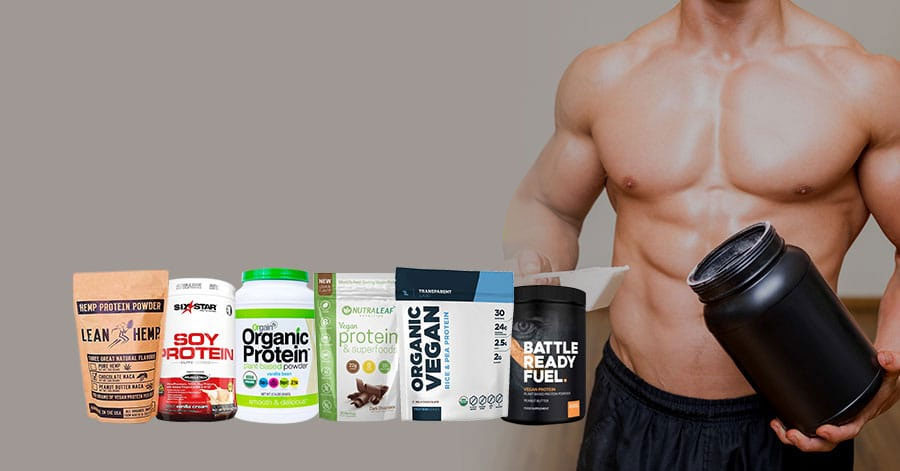
Forms and Types of Vegan Creatine
Vegan creatine supplements are available in various forms and types, catering to different preferences and needs. In this section, we will explore the most common forms of vegan creatine, such as capsules and powders, and discuss the different types of creatine available.
Capsules
Creatine in capsule form is a popular choice for those who prefer the convenience of easy-to-swallow pills. However, vegans should be cautious and ensure that the capsules are not made from gelatin, which is a non-vegan ingredient derived from animal sources. Instead, look for vegan-friendly alternatives like cellulose-based capsules.
Powders
Powders are a versatile option for creatine supplementation and can be mixed with water, juice, or incorporated into smoothies. When choosing a vegan creatine powder, opt for products that are unflavored or use plant-based flavorings and sweeteners, steering away from artificial additives.
Types of Creatine
There are several types of creatine to consider when looking for a vegan supplement:
Creatine Monohydrate: This is the most researched, commonly used, and proven form of creatine. Vegan creatine monohydrate supplements are typically synthesized from compounds like sarcosine and cyanamide, both of which are vegan-friendly. For a finer texture and improved solubility, you can choose Micronized Creatine Monohydrate which has been processed to reduce particle size.
Creatine Hydrochloride (HCL): This type of creatine is known for its higher solubility in water and may cause less bloating and stomach discomfort compared to creatine monohydrate. However, more research is needed to confirm its efficacy and long-term safety compared to monohydrate.
Creatine Ethyl Ester: This creatine form boasts enhanced absorption, but lacks sufficient research to validate its claims fully. Some users claim it leads to fewer side effects, such as stomach discomfort, compared to creatine monohydrate.
Buffered Creatine: Also known as Kre-Alkalyn, buffered creatine is claimed to have a higher pH level, which proponents argue increases its stability and effectiveness. However, research has not demonstrated significant advantages over creatine monohydrate.
In conclusion, when searching for a vegan creatine supplement, consider the forms and types mentioned above, while paying close attention to the ingredients to ensure they align with your vegan lifestyle.
Benefits and Effectiveness
Muscle Growth and Strength
Vegan creatine supplementation has shown to provide significant benefits to athletes, primarily in the areas of muscle growth and strength. Creatine is naturally found in meat products, and vegetarians typically have reduced creatine stores in their bodies. Therefore, supplementation can effectively bridge this gap and promote muscle mass and strength gains for vegan and vegetarian athletes1.
Recovery and Performance
In addition to muscle growth, studies have also demonstrated that vegan creatine can improve recovery and exercise performance among athletes2. This can be attributed to the supplement’s ability to enhance energy production and reduce muscle fatigue during intense workouts. Moreover, creatine has been linked to a reduced frequency of dehydration, muscle cramping, and injuries3, which further underscores its significance in maintaining optimal athletic performance.
Brain Health and Cognitive Function
Interestingly, creatine does not only offer benefits to physical performance but also to brain health and cognitive function. Research has shown that creatine supplementation can promote better cognition, memory, and overall brain function4. This is particularly noteworthy for vegan athletes, who may experience lower creatine levels due to dietary restrictions. By supplementing with vegan creatine, they can potentially enhance their mental acuity and cognitive abilities, adding an extra advantage to their athletic endeavors.
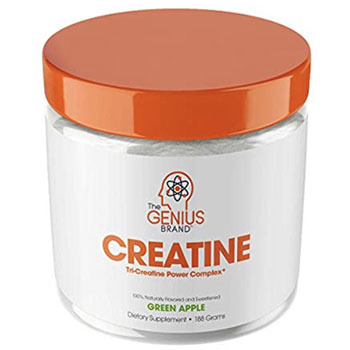
How to Use Vegan Creatine
Whether you’re a plant-based athlete or just looking to improve your fitness, vegan creatine is an excellent option to consider. In this section, we will discuss the proper way to use vegan creatine with a focus on loading phase, maintenance phase, timing, and dosing.
Loading Phase
The loading phase is a period of rapid creatine supplementation that helps to saturate the muscles with creatine more quickly. This phase usually lasts for 5-7 days. During this time, a dose of 20-25 grams of vegan creatine, divided into 3-4 equal doses throughout the day, is typically recommended (source). This allows for maximum absorption and saturation of muscle creatine.
Maintenance Phase
Following the loading phase, the maintenance phase involves a reduced daily intake of vegan creatine to sustain the benefits obtained during the initial period. The maintenance dose is typically between 3-5 grams per day, taken in a single serving. This phase can last indefinitely, as there is no specific duration for maintaining creatine levels. However, some individuals may choose to cycle their creatine supplementation, taking breaks in between cycles.
Timing and Dosing
Although creatine can be taken at any time of the day, some studies suggest that it may be most effective when consumed immediately before or after a workout (source). This is because consuming creatine around the time of exercise may help enhance creatine transport and uptake by the muscles.
To ensure accurate dosing, it’s important to use a reliable scale for measuring vegan creatine powder. When calculating your dosage, be sure to account for factors such as personal body weight and fitness goals. If you’re using creatine in capsule form, be sure that the capsules are not made from gelatin, a non-vegan ingredient (source).
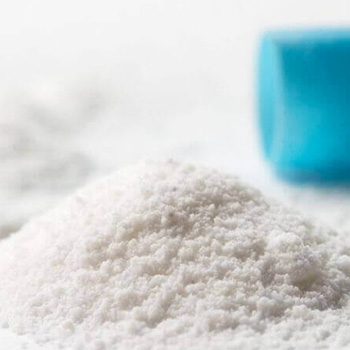
Popular Vegan Creatine Brands and Products
In this section, we will discuss some popular vegan creatine brands and products that stand out in the market, helping you make an informed decision.
Transparent Labs Creatine HMB
Transparent Labs Creatine HMB is a unique vegan creatine supplement, which combines pure creatine monohydrate with HMB. The mixture of creatine and HMB aids in increasing muscle size, strength, and endurance, promoting better post-workout recovery. This high-quality formula doesn’t use any artificial sweeteners or preservatives, offering a clean and effective option for those seeking an excellent vegan creatine supplement.
Key features of Transparent Labs Creatine HMB include:
- 5 grams of Creapure Creatine Monohydrate per serving
- 2 grams of HMB per serving
- No artificial sweeteners, preservatives, or additives
Optimum Nutrition Creatine Powder
Next up is Optimum Nutrition Creatine Powder. This vegan creatine supplement provides micronized creatine monohydrate, which ensures easy mixing and absorption. With a focus on quality, Optimum Nutrition’s Creatine Powder delivers an effective and reliable product to support your fitness goals.
Optimum Nutrition Creatine Powder highlights:
- 5 grams of micronized creatine monohydrate per serving
- Unflavored for versatile mixing with other beverages
- Supports increased strength, power, and muscle recovery
BulkSupplements Creatine Monohydrate
BulkSupplements Creatine Monohydrate offers a pure and straightforward vegan creatine option. With no other additives or ingredients, this supplement focuses on delivering the essential creatine your body needs. As a bonus, BulkSupplements provides its creatine in various packaging sizes to accommodate the needs of different users.
Key aspects of BulkSupplements Creatine Monohydrate:
- 5 grams of pure creatine monohydrate per serving
- No additional ingredients or additives
- Available in various package sizes
Genius Creatine Powder
Genius Creatine Powder brings innovation to the vegan creatine market by incorporating additional ingredients that promote better performance and recovery. This product features a combination of creatine monohydrate, betaine, elevATP, and AstraGin, which makes it a value-added option for those seeking an advanced creatine blend.
Genius Creatine Powder main features:
- 3 grams of creatine monohydrate per serving
- Includes betaine, elevATP, and AstraGin for enhanced absorption
- Quality and transparency, with no artificial flavors or sweeteners
With this information, you can now make an informed decision on the best vegan creatine supplement that meets your needs and preferences.

Potential Side Effects and Precautions
When considering incorporating vegan creatine into your diet, it is crucial to understand the potential side effects and precautions associated with its use. This section will provide an overview of these factors for informed decision-making.
Common Side Effects
Like any other supplement, vegan creatine may have potential side effects for some individuals. Some side effects may include:
- Dehydration: As creatine helps muscles store more water, it may also lead to an increased risk of dehydration. It’s essential to maintain proper hydration levels throughout the day.
- Weight gain: Creatine-users may experience a temporary increase in weight due to water retention in muscles. This is a typical effect of creatine and usually not a cause for concern.
- Digestive issues: Some people might experience stomach discomfort, gas, or bloating when taking creatine. To minimize this possibility, it’s recommended to increase creatine consumption gradually, allowing your body to adapt.
Interactions and Precautions
It’s essential to be aware of potential interactions and precautions when using creatine. Some points to consider are:
- Kidney and liver health: Although research shows that creatine is generally safe for long-term use, those with pre-existing kidney or liver conditions should consult a healthcare provider before using creatine.
- Compatibility with medications: Creatine may interact with some medications, such as nonsteroidal anti-inflammatory drugs (NSAIDs) and diuretics. Discuss any potential interactions with your healthcare provider.
- Caffeine: Studies suggest that combining creatine and caffeine may reduce its effectiveness. Therefore, it might be best to avoid high caffeine intake when supplementing with creatine.
Consulting Your Healthcare Provider
It’s essential to consult a medical professional before adding creatine to your routine, especially if you have existing health conditions or are taking medications. A healthcare provider can provide personalized advice on the appropriate dosages, potential side effects, and any other precautions to ensure you safely incorporate this supplement into your diet.

Natural Sources and Alternative Vegan Options
Plant-Based Creatine Sources
While creatine is primarily found in animal-based food sources, such as meat and fish, there are some plant-based alternatives that can provide trace amounts of creatine. However, it’s important to note that these sources typically contain lower amounts of creatine compared to their animal-based counterparts.
Some of the plant-based foods that contain creatine include:
- Tofu: As a soy-based product, tofu contains small amounts of creatine and serves as a protein-packed option for vegans.
- Brazil nuts: These nuts can contribute to creatine intake, as they contain methionine, an amino acid involved in creatine synthesis.
- White beans: Rich in protein and fiber, white beans offer trace amounts of creatine and methionine.
Despite the availability of these plant-based creatine sources, research suggests that vegans and vegetarians tend to have lower amounts of creatine in their muscles, which could affect athletic performance.
Other Vegan-Friendly Supplements
To ensure optimal creatine intake, vegans may benefit from vegan-friendly creatine supplements in addition to their plant-based diets. These supplements are synthetically made and generally do not contain any animal products.
Here are some vegan creatine supplements that are available:
- Cira Nutrition Creatine Monohydrate: Specifically formulated for women, this supplement aims to improve muscle health, strength, and reduce body fat.
- Creatine Powder by Simply Healthy Vegan: This creatine powder can be consumed pre-, intra-, and post-workout, providing the recommended daily dose of 3g of creatine per serving.
While incorporating these supplements into your diet, it’s essential to consult with a healthcare professional to determine the right dosage and regimen that fits your individual needs.
Footnotes
- Why is My Poop Black: Uncovering the Causes and Solutions - December 21, 2023
- Clear Protein Drinks: Optimal Hydration and Muscle Support for Athletes and Fitness Enthusiasts - December 21, 2023
- Does Apple Juice Make You Poop: Uncovering the Digestive Effects - November 29, 2023

